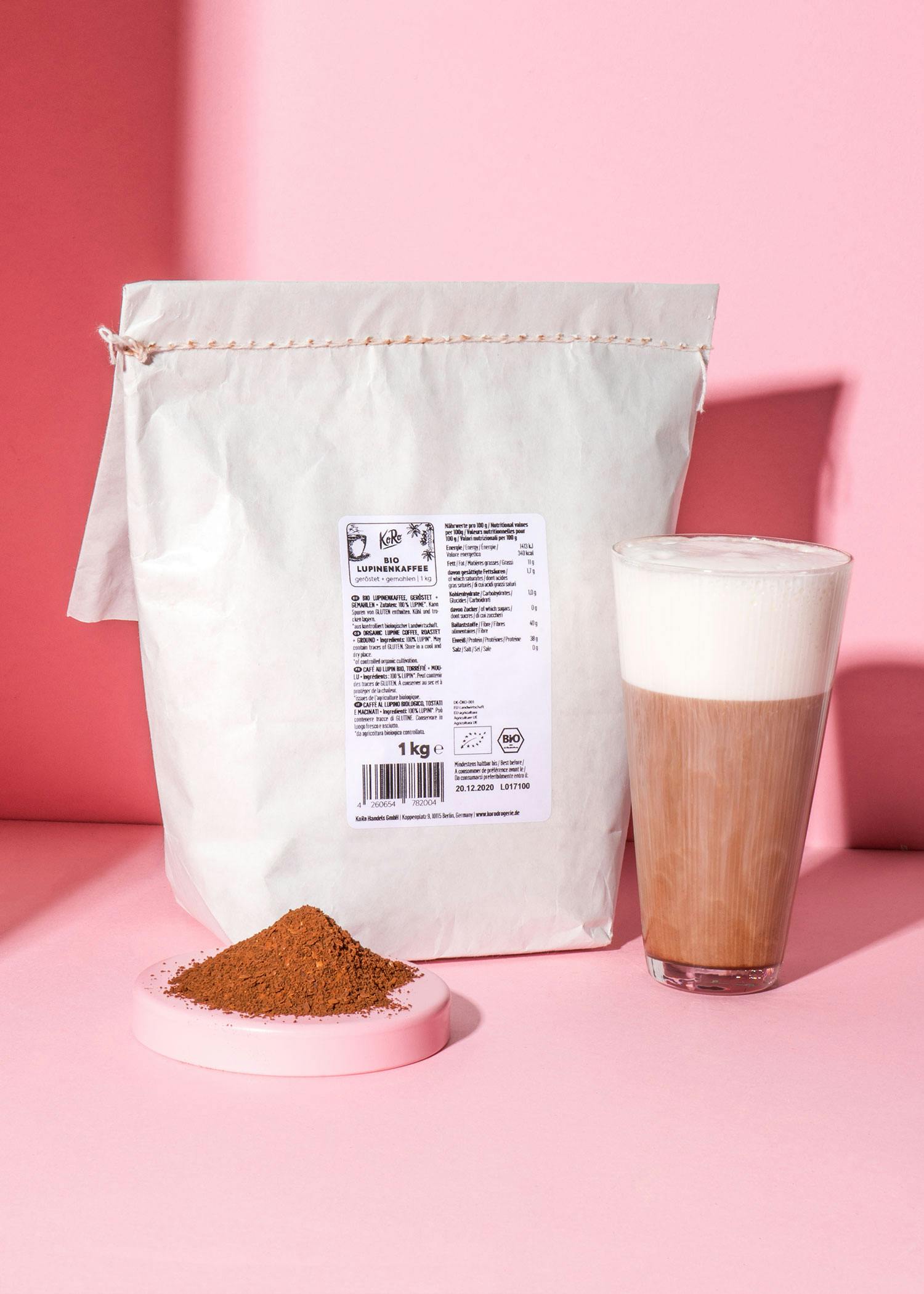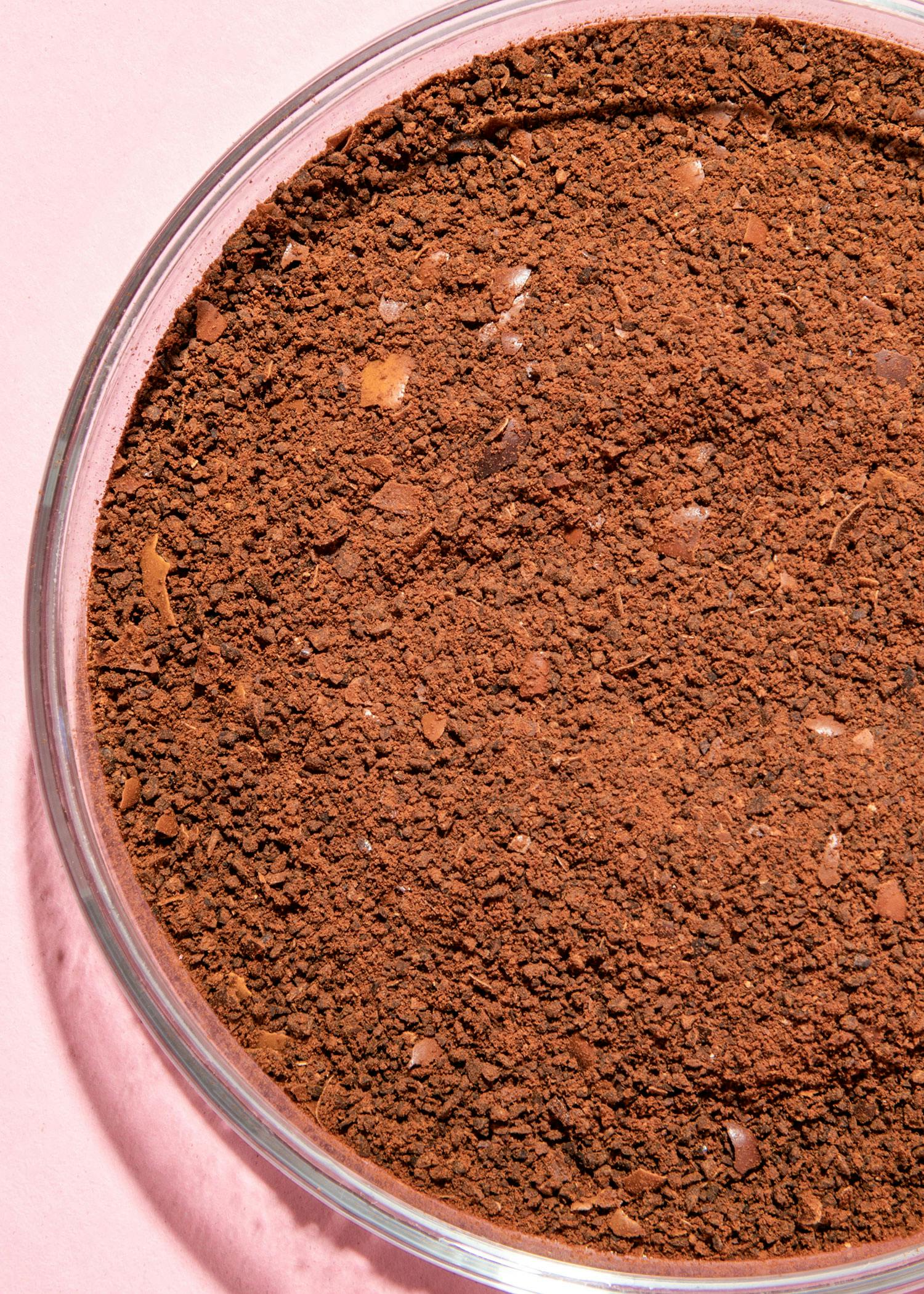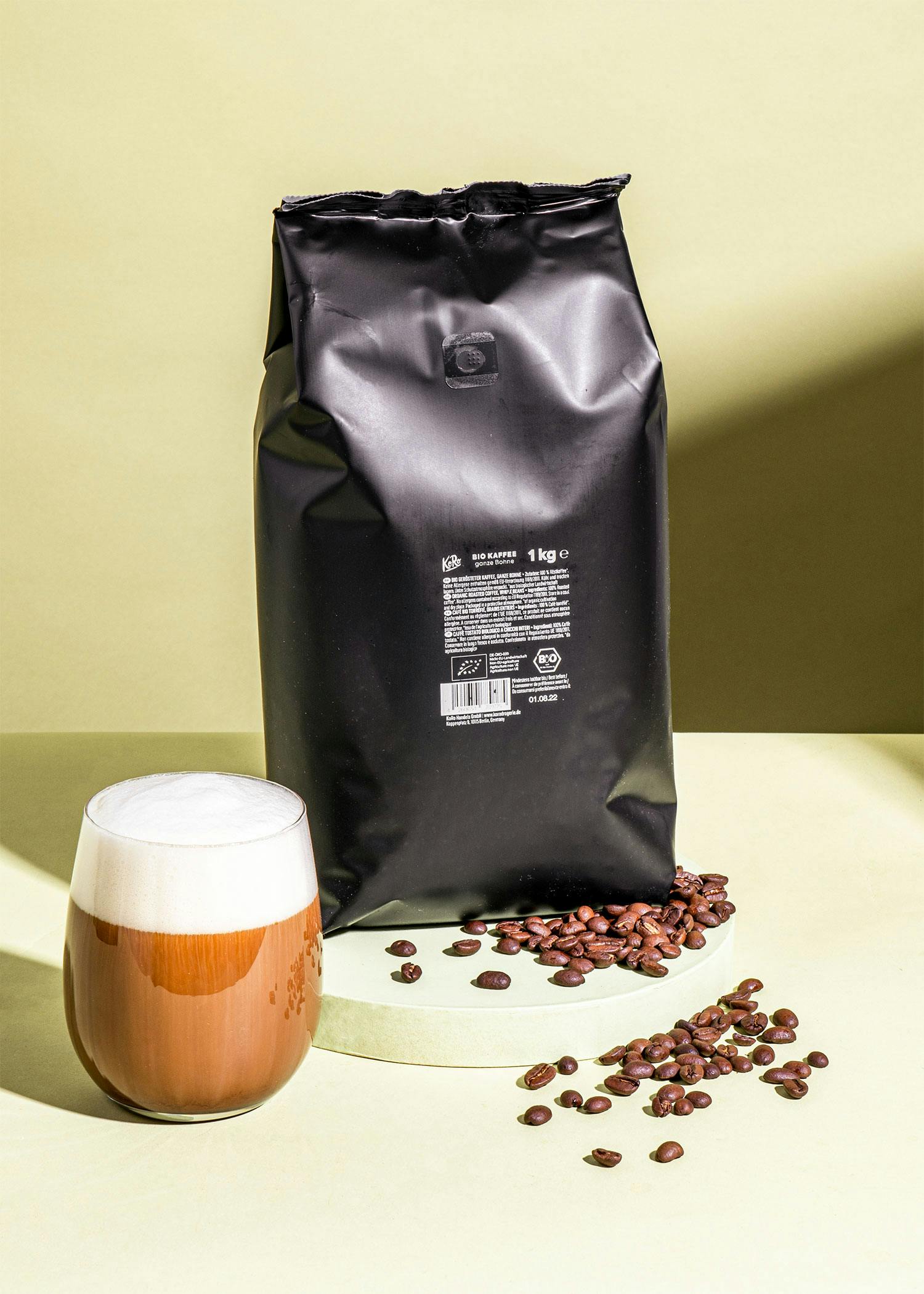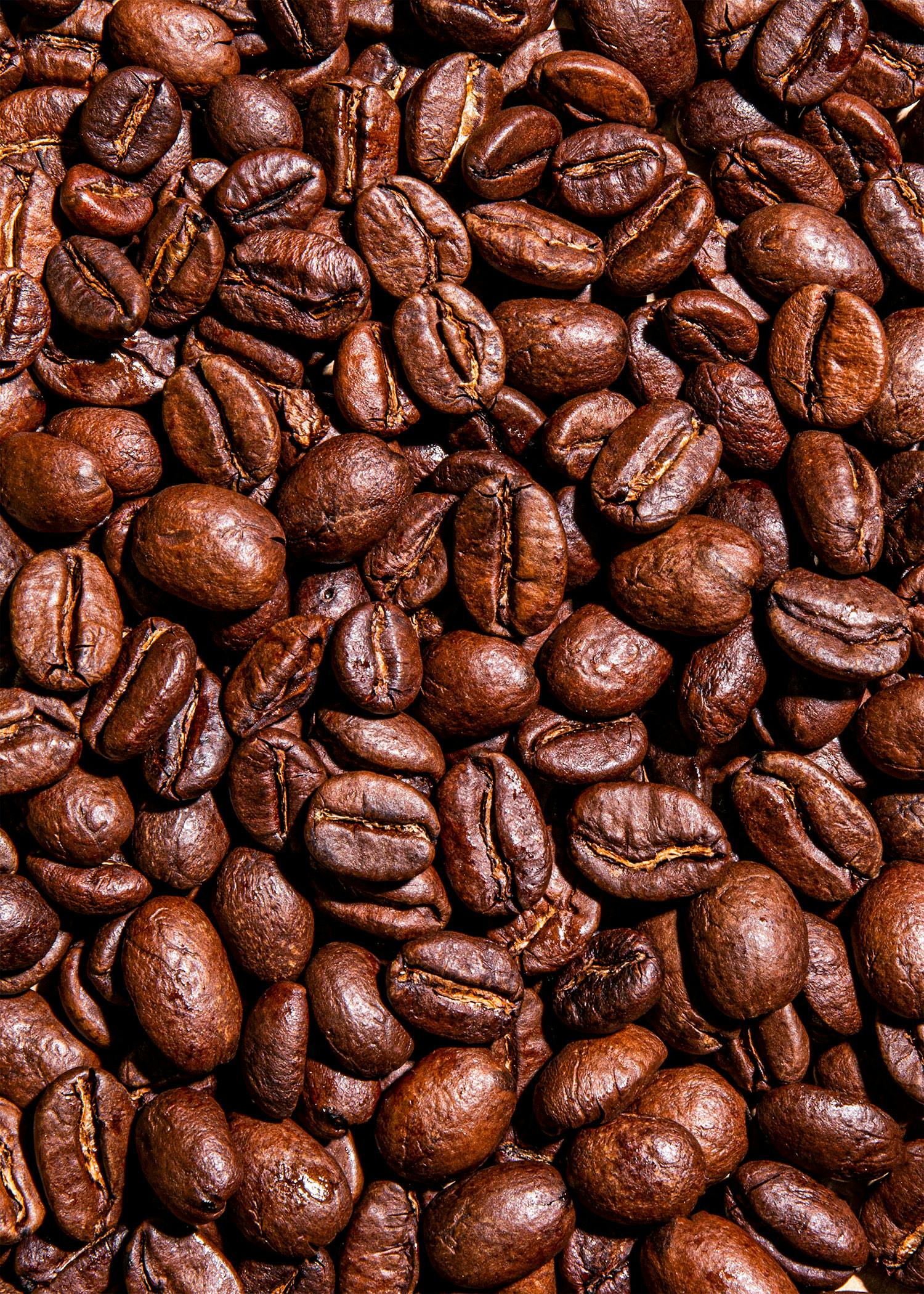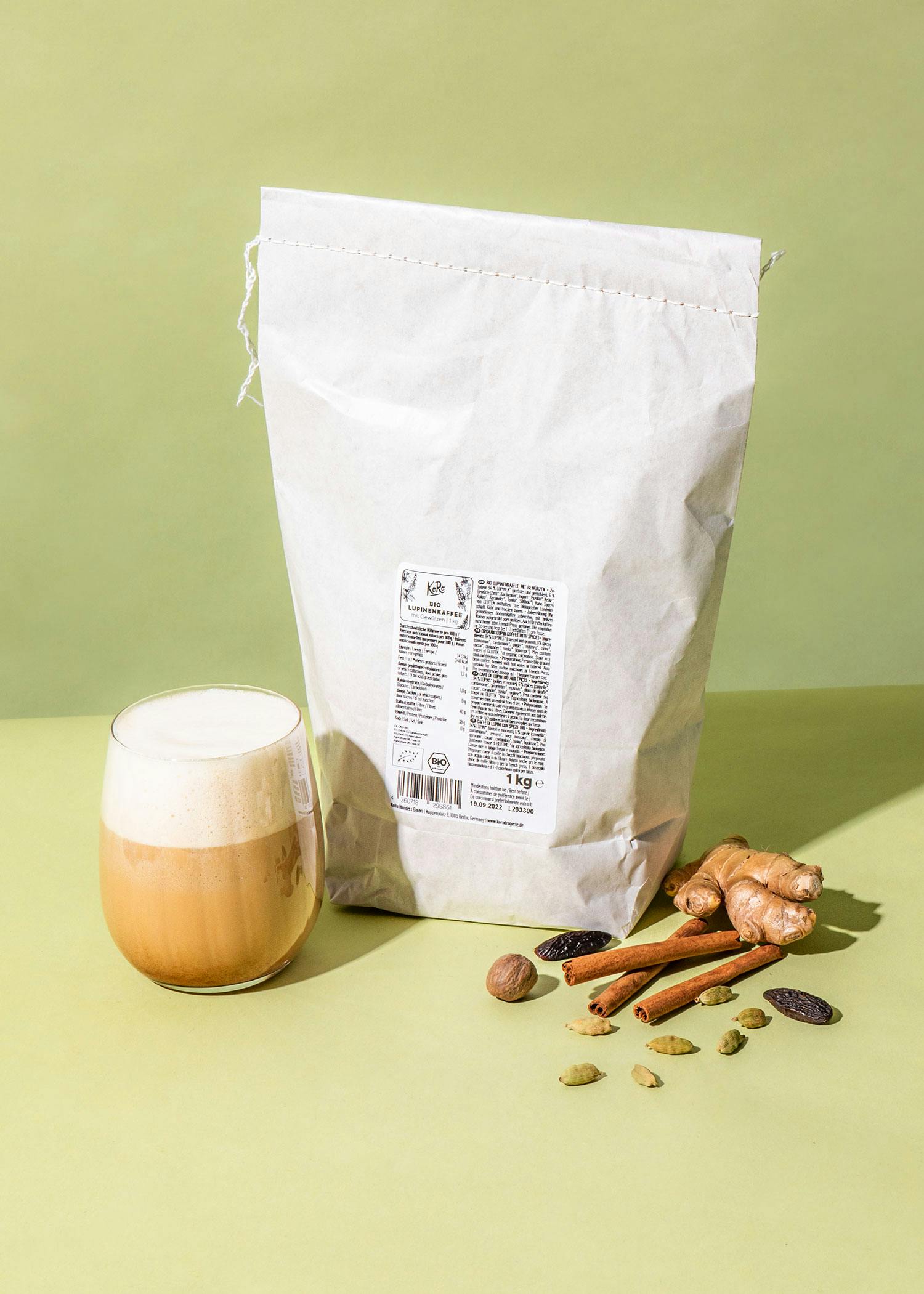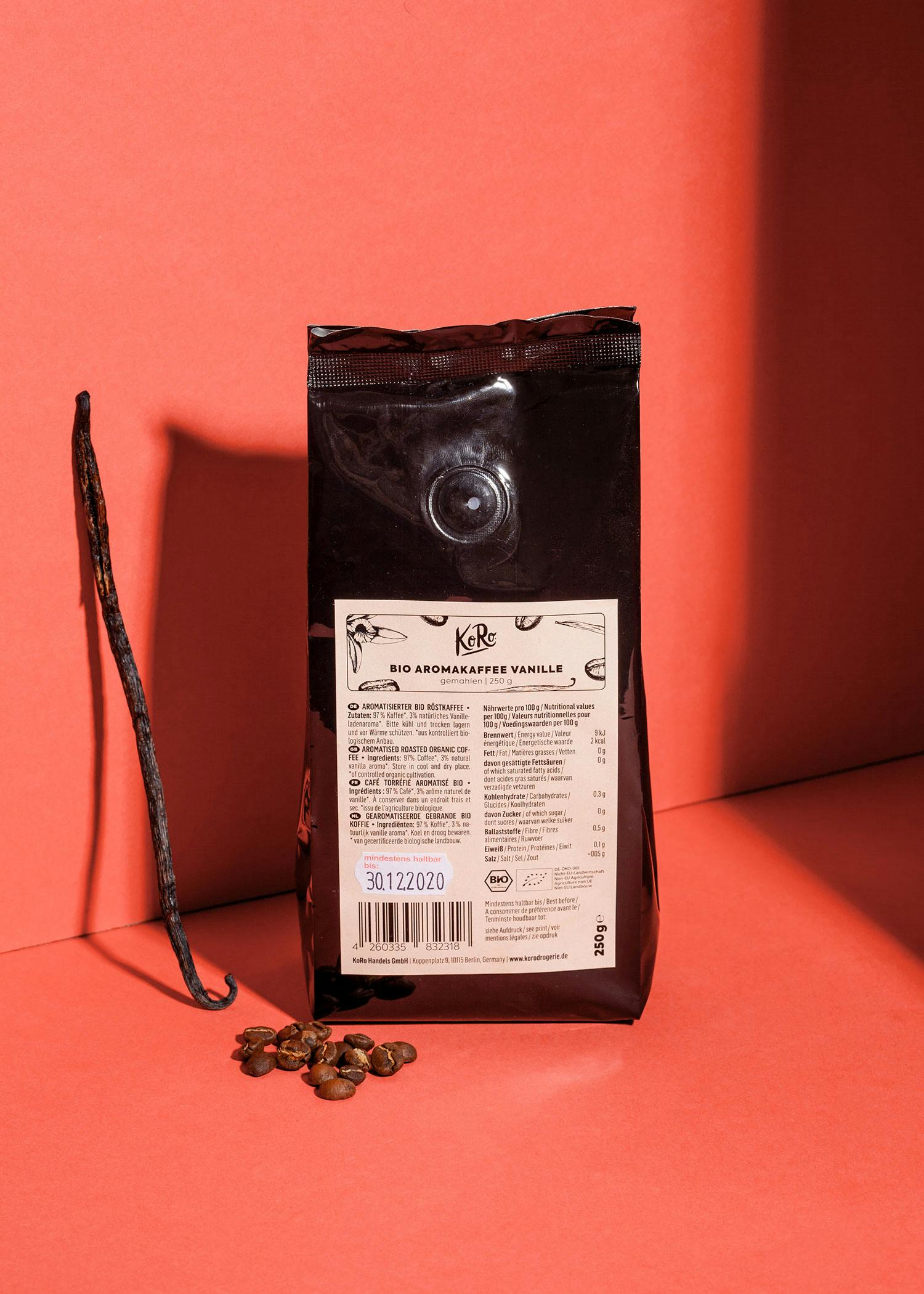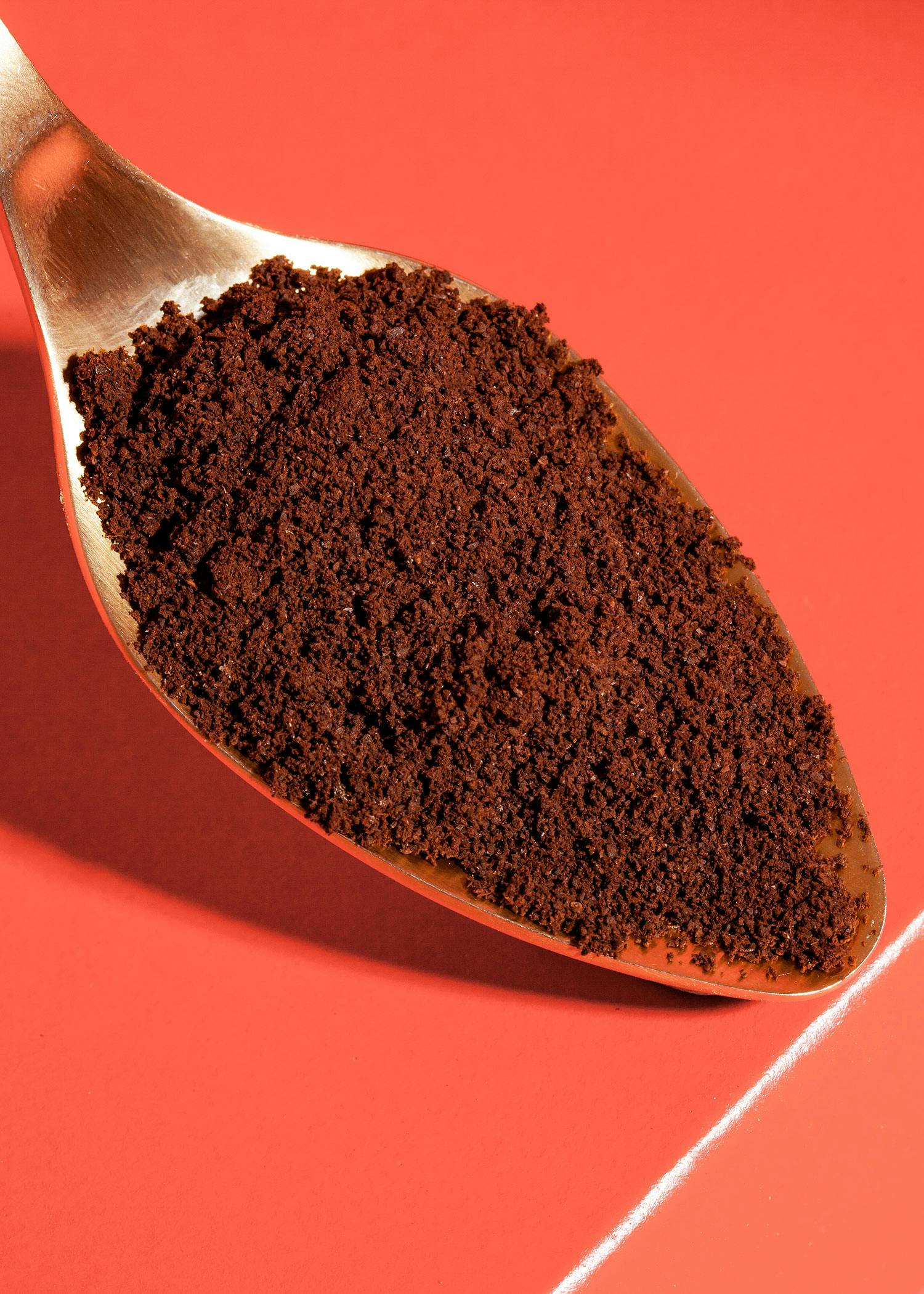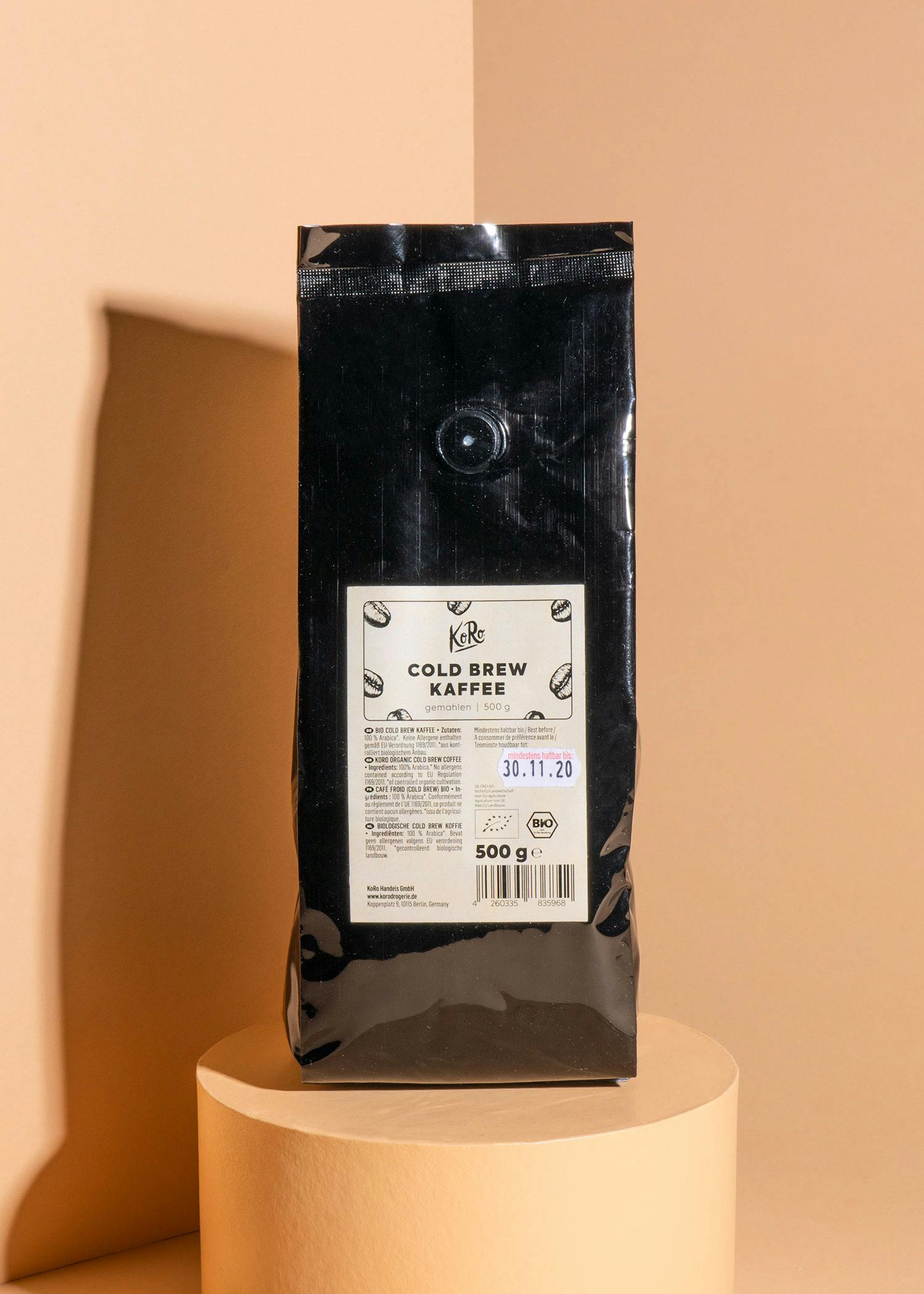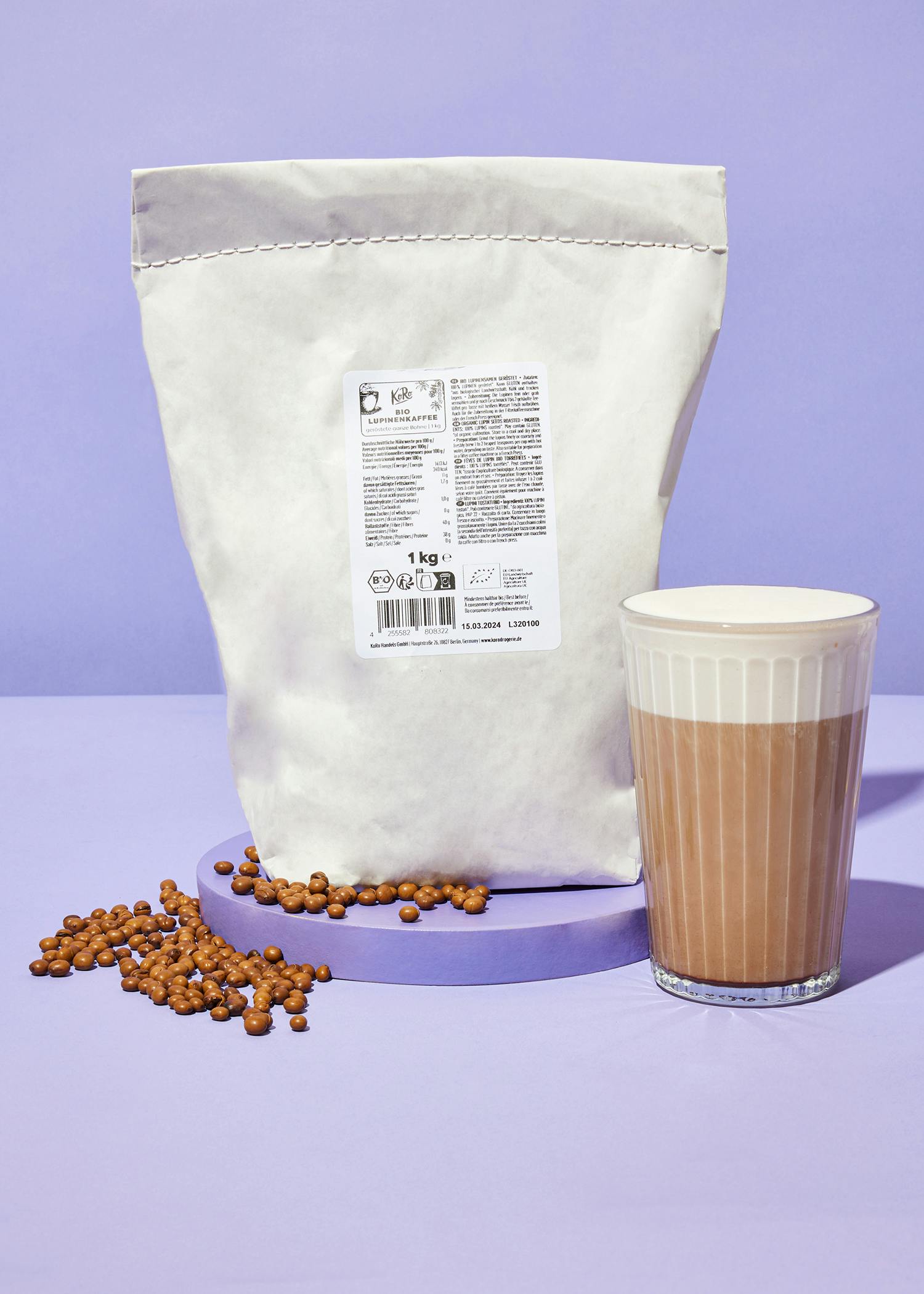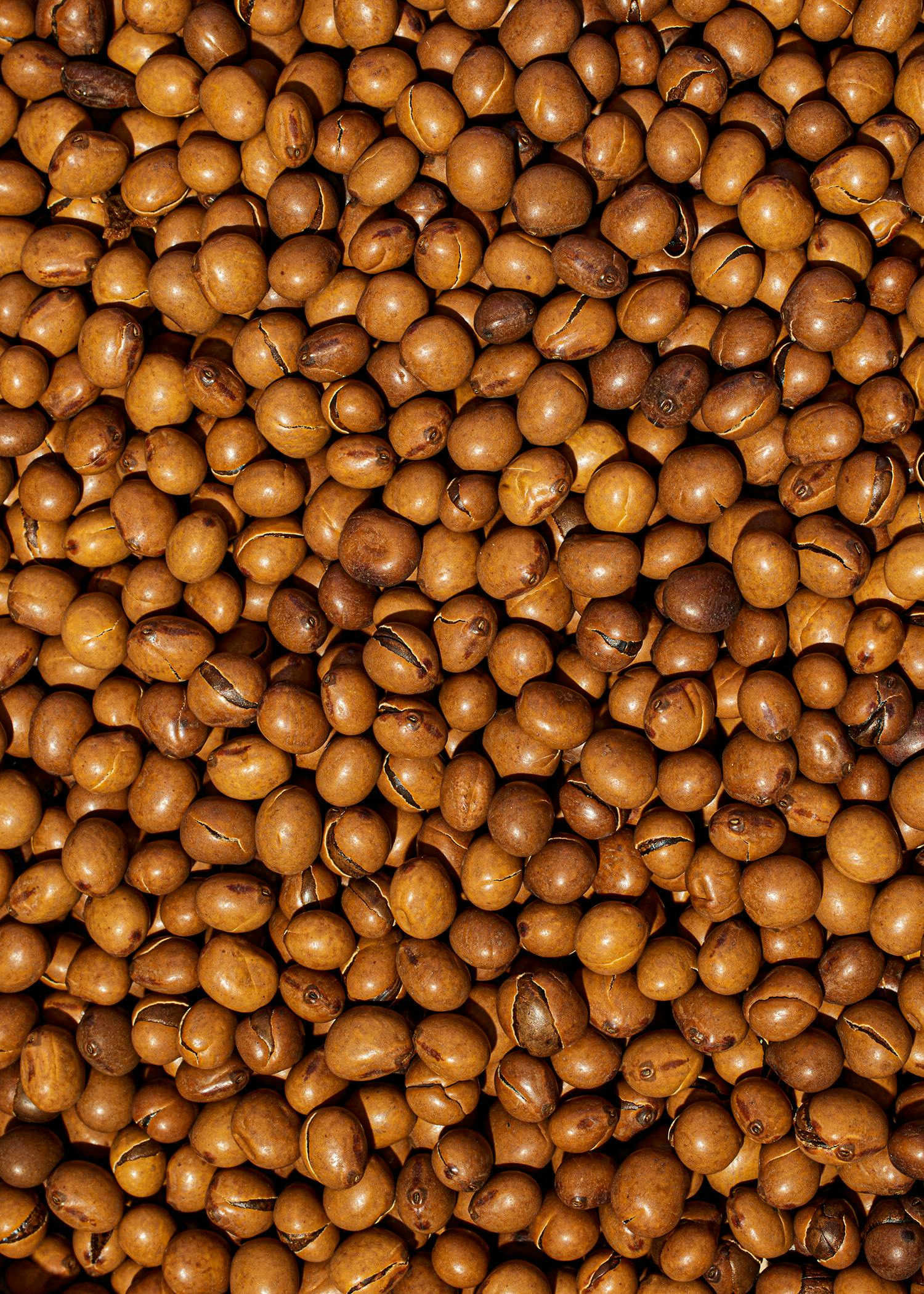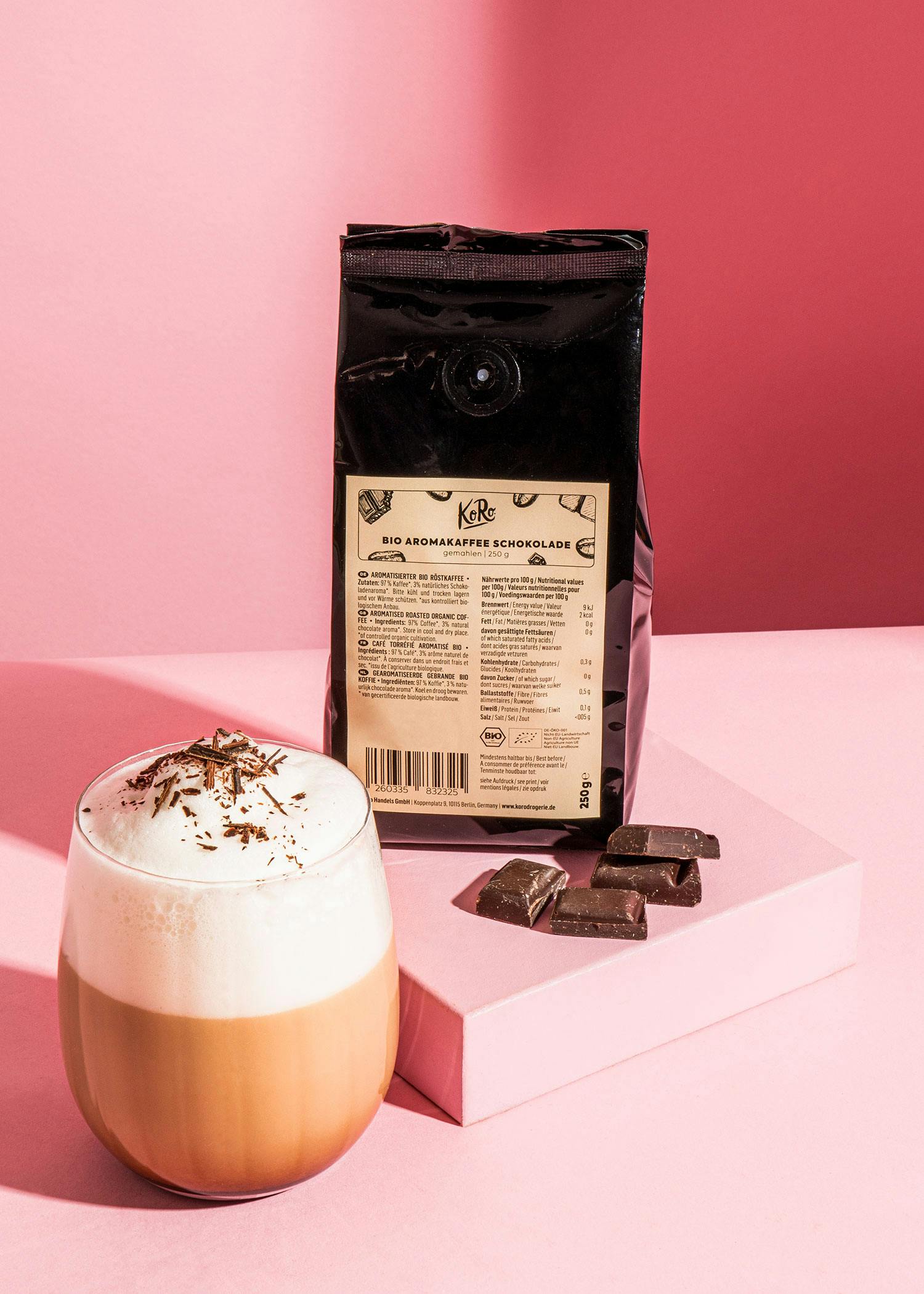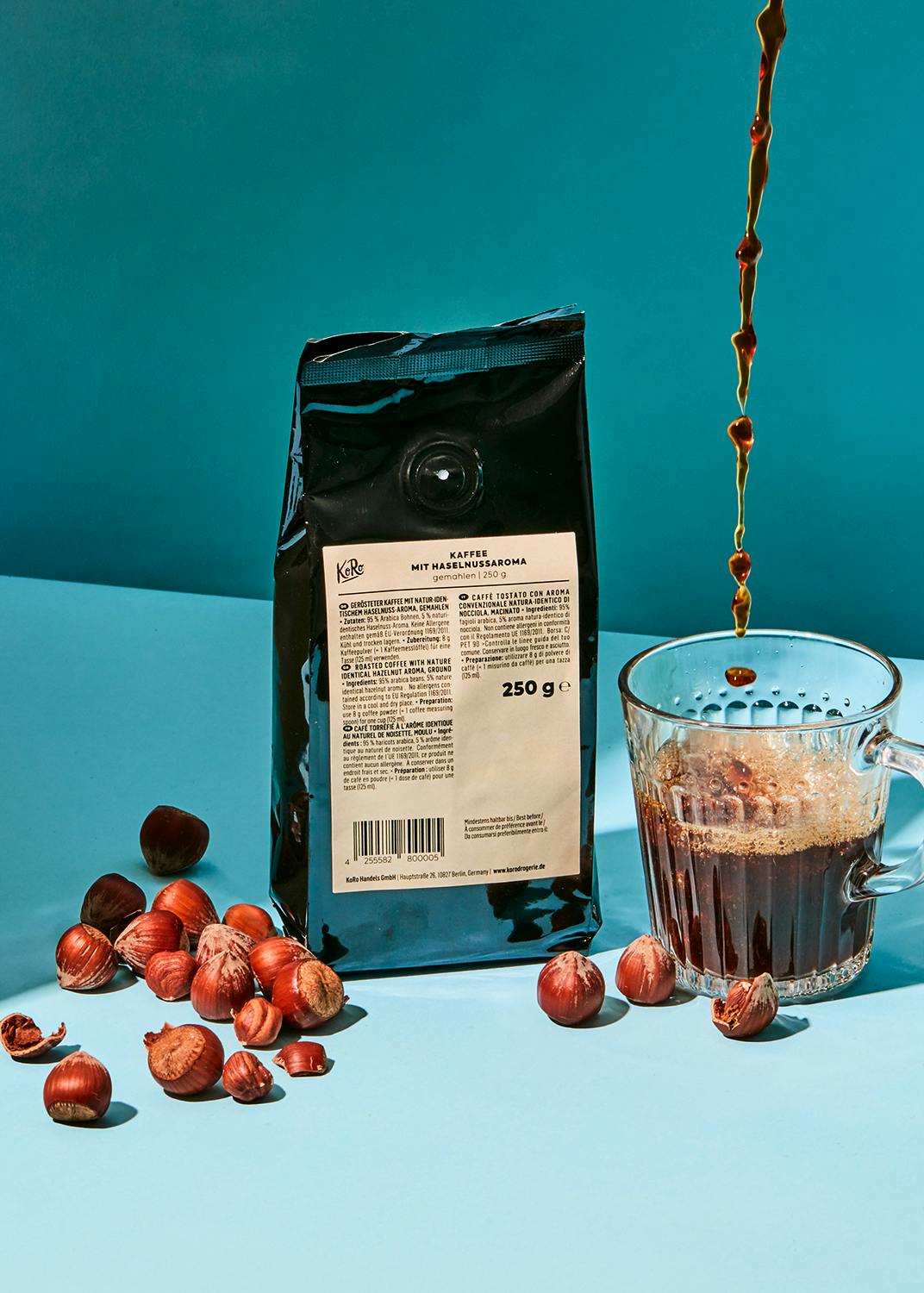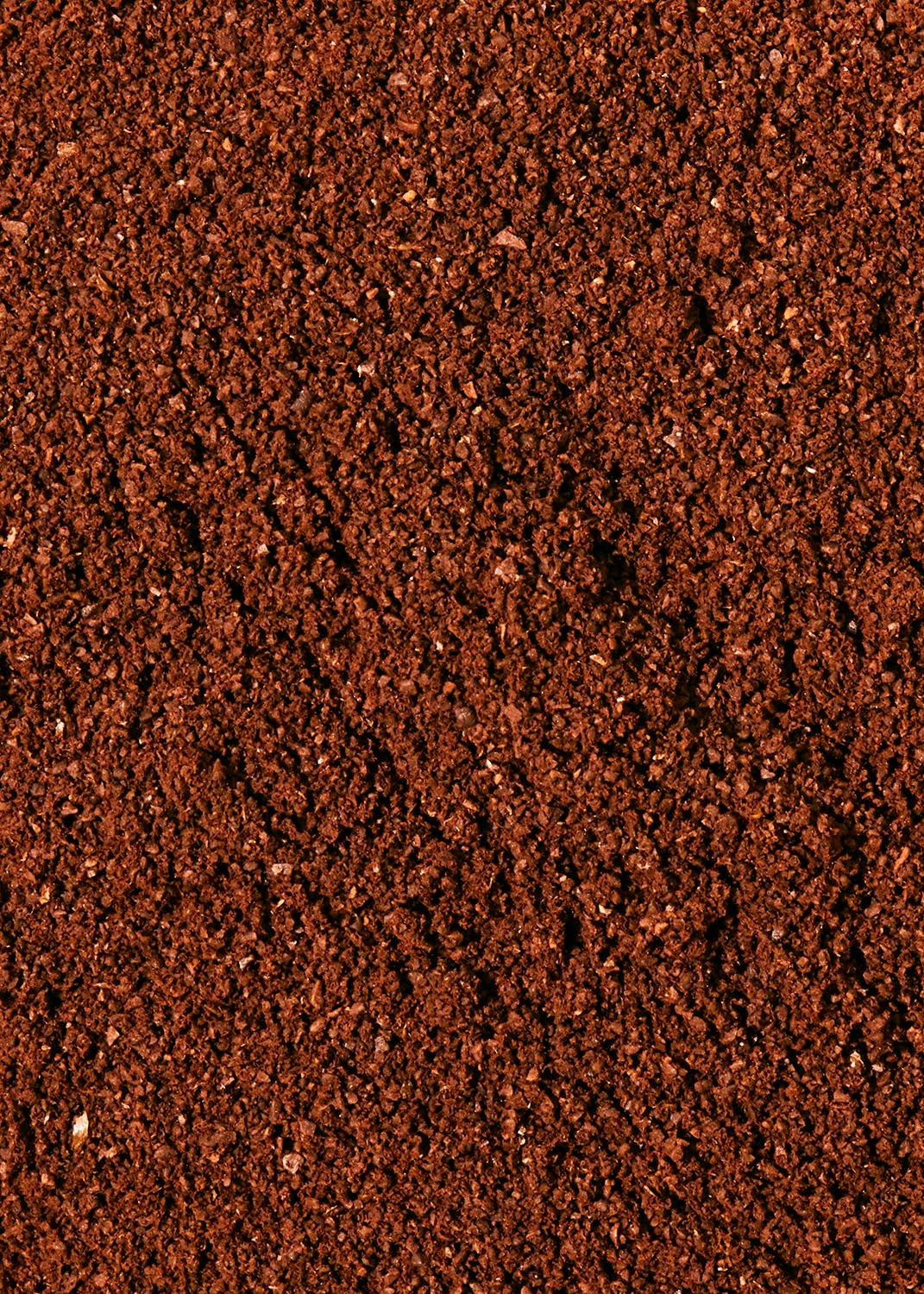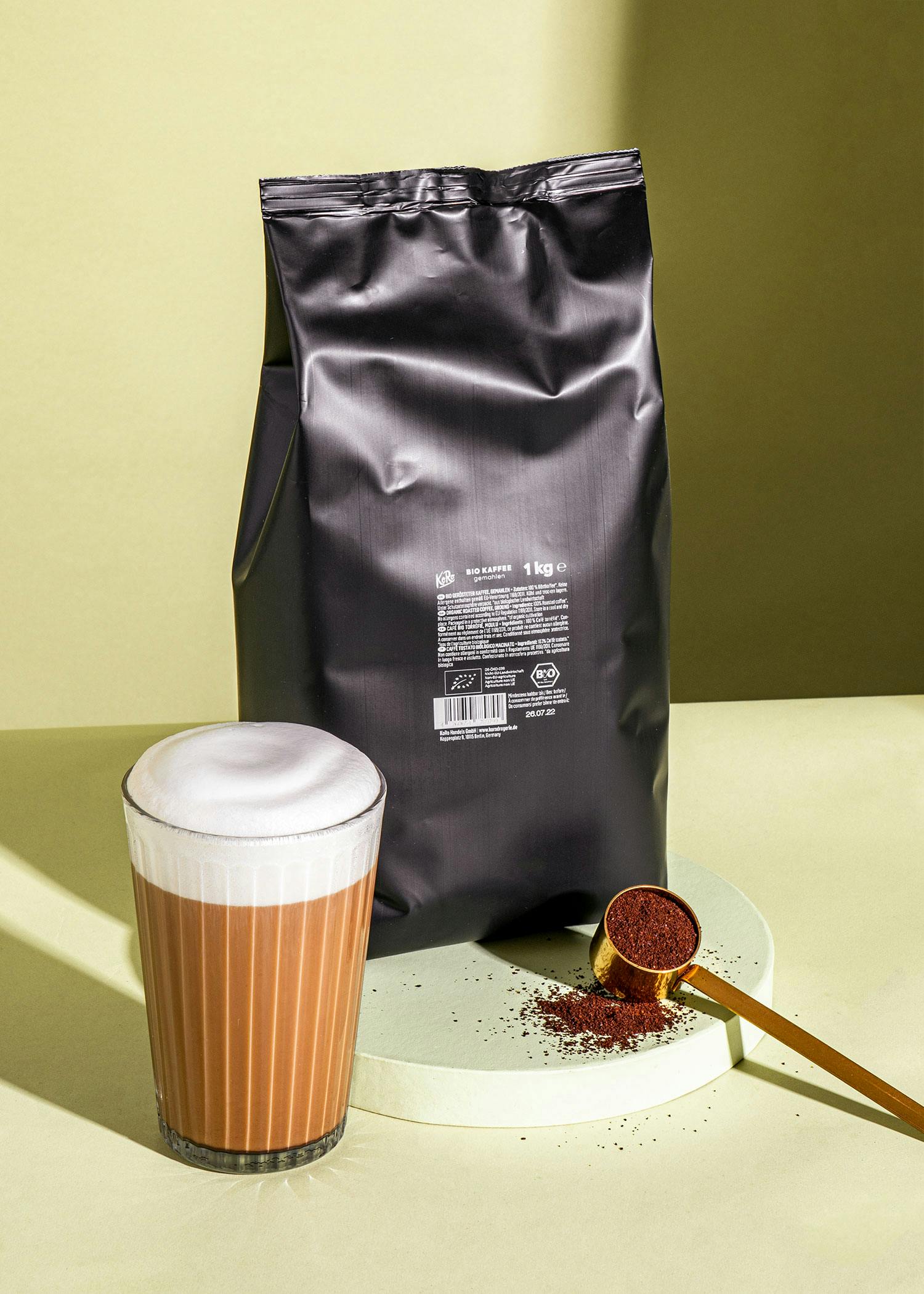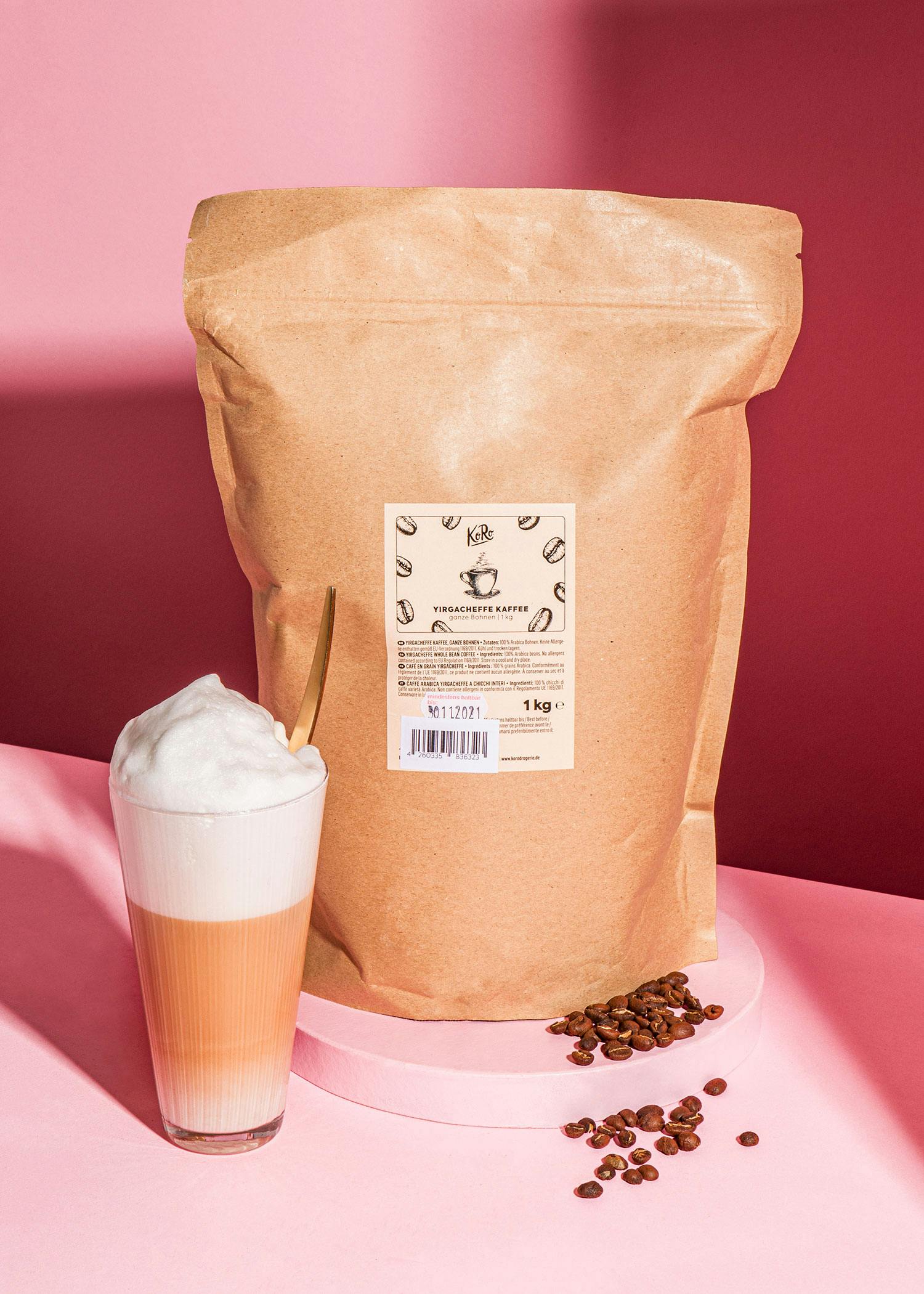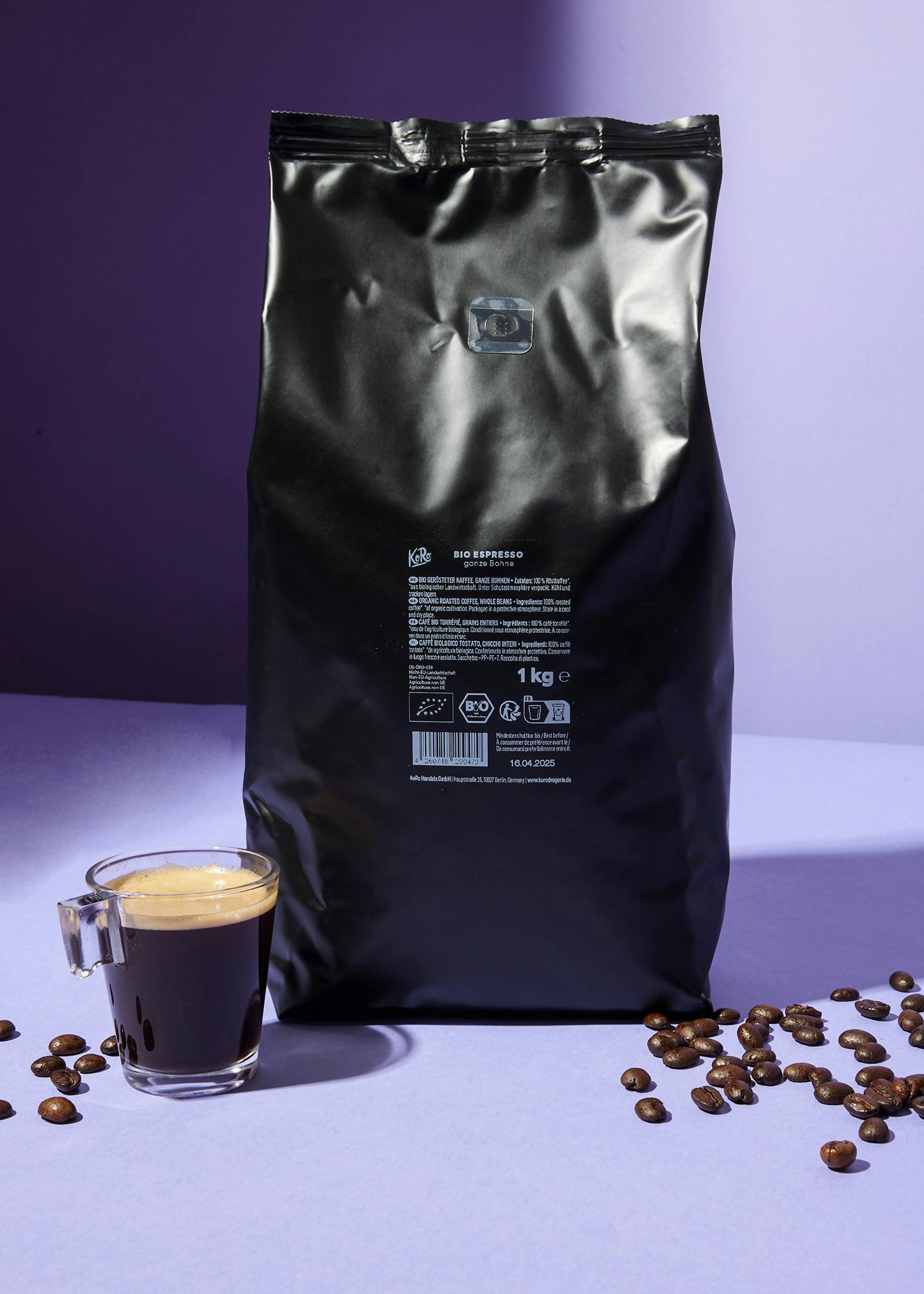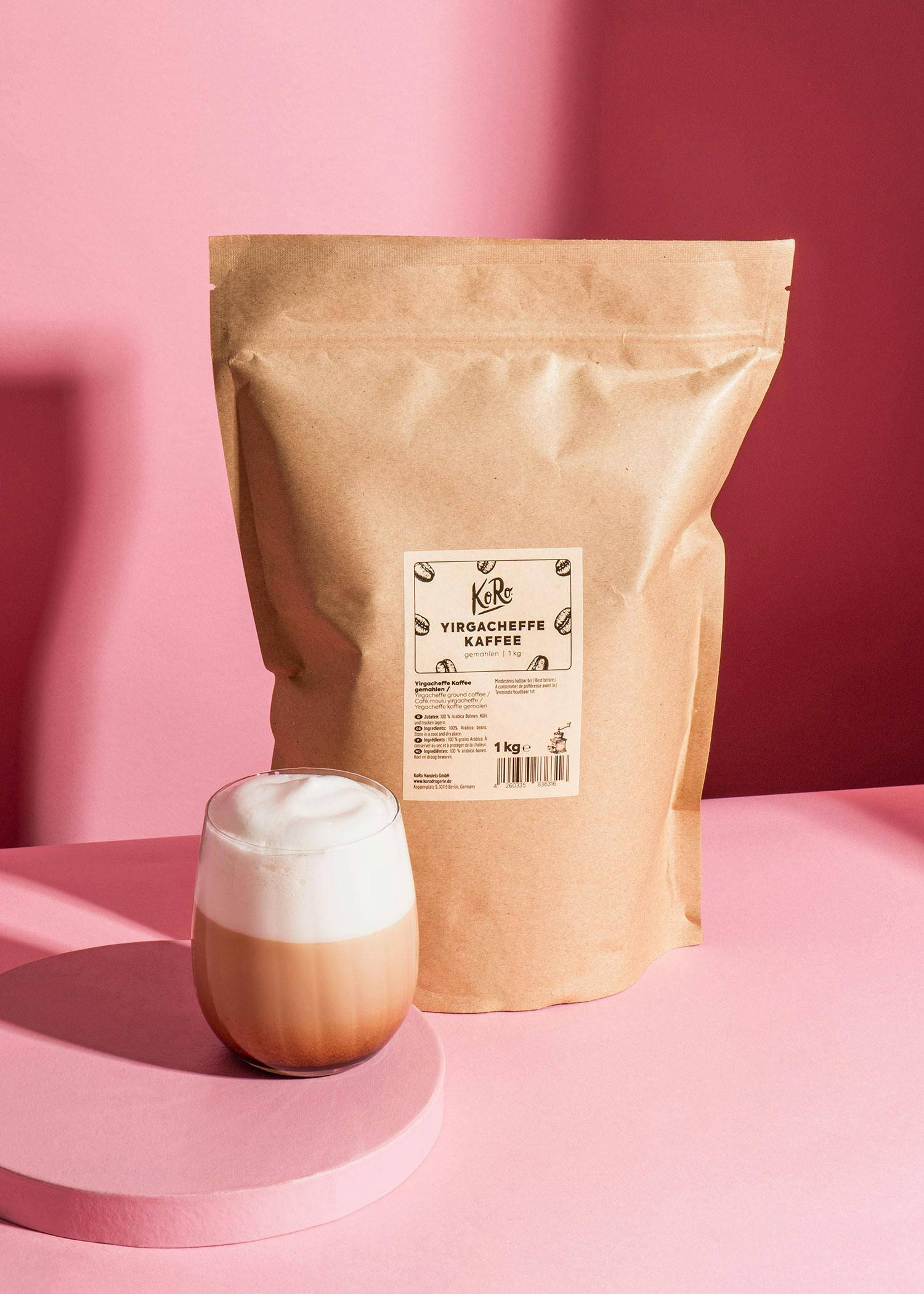Coffee
13 ArticleBuying coffee
78% of Irish people drink coffee every single day, with an average 3 cups consumed daily. Some people even go so far as not to leave the house without their morning fix. If you are one of them and can't imagine having breakfast without coffee, then you've come to the right place. We offer coffee in all its glory: as whole beans and coarsely ground, roasted, flavoured, with and without caffeine, and even as a chocolate-covered snack. Welcome to the realm of coffee fans.
Coffee grows around the globe
Ethiopia, Brazil, Vietnam and Indonesia are far apart from each other, but they have one thing in common: they are located in the so-called coffee belt between the 23rd parallel north and the 25th parallel south. The origin of coffee is therefore spread around the equator around the globe. There, the ideal conditions for cultivation prevail – wide fields at high altitudes and temperatures above 18°C all year round. This allows coffee cherries to be harvested twice a year. We offer you a premium coffee from the home of aromatic Arabica coffee: coffee beans from Yirgacheffe in Ethiopia, grown at altitudes of up to 2200 metres.
Organic coffee at KoRo
When available, we try to include organic coffee in our range. A highlight of our organic coffees is our flavoured coffee with chocolate flavour or our roast with a fine vanilla note. You should also try our organic cold brew roast. Our lupin coffee is ideal for caffeine-free coffee enjoyment in organic quality.
Coffee from KoRo for any time of the day
The word coffee comes from Arabic and means something like ‘stimulating drink’. Although many people appreciate an espresso as a pick-me-up in the morning and a cappuccino to fight the midday slump, the effect of coffee on the body is not really medically understood. But that doesn't matter. As long as you enjoy the drink, it motivates you to start the day or makes you sociable in the office kitchen, coffee has already fulfilled its function.
Whole coffee beans for the bean-to-cup machine and grinder
You can tell from our whole coffee beans that the coffee is of a special quality. No breakage, an even colour profile and a wonderful aroma. Our Yirgacheffe coffee is roasted in small batches in Hamburg so that it can develop its full aroma in your home in the bean-to-cup machine or your hand mill.
Ground coffee for French presses, portafilters and filters
If you like to prepare your coffee in a portafilter machine or French press, you won't get very far with whole beans, of course. Having your own coffee grinder is practical, but it takes up a lot of space in the kitchen – and that quick morning coffee would then take two minutes longer. We offer you the all-round carefree package: ready-ground coffees that taste like they just came fresh from the grinder thanks to the airtight and resealable packaging. Try our organic ground coffee, Yirgacheffe ground coffee, or even our flavoured coffees, such as the ground coffee with hazelnut flavour. Pour it into the filter, sieve holder or French press and enjoy your coffee.
Coffee alternatives
Is it already your sixth cup of coffee today and it's not even noon yet? Then you must be a real coffee fan. And a day without coffee can trigger symptoms such as nervousness, headaches and irritability. But it doesn't have to come to that. Just add a little more variety to your life and try out other hot drinks that are just as enjoyable as coffee. Next time, how about a matcha latte instead of a latte macchiato? Or an eye-catching drink like golden milk with turmeric and pepper after lunch? A caffeine-free classic is, of course, hot chocolate.
If you want coffee but without the caffeine, try our caffeine-free organic lupin coffee, which tastes like a mild, nutty roast.
Coffee with natural flavouring – no added syrup
Latte macchiato with two pumps of caramel syrup and a dollop of cream on top – tastes great, but is anything but a light treat. A natural and more flavourful alternative to this sugar bomb is our flavoured coffee powder with vanilla. For those who prefer a nutty flavour, our hazelnut coffee is the ideal choice. If you like something a little more unusual, you should definitely try our coffee flavoured with cinnamon and cardamom. And if you can't decide between cocoa and coffee, try our coffee with chocolate flavouring. It tastes delicious with frothed oat milk. Then add a reusable glass straw to the cup and your feel-good drink is ready.
Not just a drink: coffee recipes
Coffee and cake are a perfect match. So why not bake with coffee? The nutty chocolate cinnamon waffles, with hidden hazelnut coffee powder, are a heavenly creation. To start the day with a double dose of coffee, why not try our banana peanut coffee bowl?
Coffee against unpleasant odours
Coffee grounds are much too good for the rubbish bin. Although they are also useful there to neutralise odours. But not only there: if you have cooked your legendary spaghetti aglio et olio for the whole family and your hands smell of garlic accordingly, coffee grounds are your saviour. Simply rub a little coffee grounds into your damp hands and then wash them thoroughly – and the smell will be gone.
Coffee cleans your skin naturally
Coffee grounds should not be missing from your next spa day. That's right, because with coffee grounds, sugar and coconut oil, you can quickly conjure up a natural coffee scrub. By the way, bottled in a pretty storage jar, this homemade beauty treatment makes a great gift for your loved ones. Why not add a bulk pack of chocolate-covered coffee beans for snacking to keep all coffee fans happy and cheerful?
Coffee as fertiliser
Coffee not only helps you to achieve peak performance, but also your plants on the balcony or garden. Thanks to the nitrogen and acid in coffee grounds, you can give your plants a growth boost. So, the next time the bean-to-cup machine prompts you to empty the grounds container, you don't have to open the organic waste with a frown. Instead, you can look forward to free fertiliser for your herbs, hydrangeas and tomato plants. Simply mix some coffee grounds into the soil and cover with mulch if necessary.
All questions about coffee
We want to give you all the information about our coffee. If you have questions about a specific product, it's best to check the product specification. If you don't find what you're looking for there, please contact us by email or on social media and we'll answer all your questions.
How do I measure coffee correctly?
One question, countless answers. The right dosage depends on how you prepare your coffee.
If you use a moka pot to make coffee, you don't need scales or a special spoon to measure out the coffee. You just need to fill the sieve to the brim with ground coffee and you don't need to worry about it.
With a French press or a hand filter, it's a different story. Here you need about 32g of coffee for 500ml of water. If you don't have scales to hand, you can also measure out the coffee using three to four heaped tablespoons. Of course, the dosage also depends on how strong you like your coffee.
How is coffee made?
Before the coffee is delivered to you, it has already been through quite a process. The coffee beans that you know from the adverts and that we sell were originally dark red fruits. Freshly harvested coffee cherries look a bit like cranberries and have sweet flesh. But it is the fruit that contains the real treasure: the coffee bean. The flesh is removed in an elaborate washing and drying process, after which the bean can be processed. Since unroasted coffee tastes incredibly sour, the beans are roasted. This is a whole science in itself: the roasting process determines the type, degree and length of the roasting. During the process, the beans double in size. The roasted coffee is then cooled and packaged.
How do I make coffee in a French press?
The name French Press didn't come out of nowhere. Although the first patent for the press pot was filed by an Italian, the coffee world assumes that it originated from our French neighbours.
Even today, the coffee press is still very popular there. And rightly so, because making coffee in a French Press is extremely easy. While the water is heating up in the kettle to ideally 95°C, you can measure out the coarsely ground coffee at your leisure. Depending on how strong you like your coffee, about 32 g of coffee – that is, three to four heaped tablespoons – goes into 500 ml of water. Then pour in the heated water, stir once with a spoon and wait five minutes. Then gently press down on the plunger and your coffee is ready. If you want to try an unusual variation on the French press preparation, mix a pinch of salt and a teaspoon of cinnamon into the coffee powder before brewing.
What is the best way to store coffee?
Generally speaking, coffee tastes best when it is fresh. But since a pound of coffee beans makes about 15 litres of coffee, we understand if you don't finish the beans in a week. To keep the coffee's aroma, it's best to store it in a dry place away from light.
Our ground coffee, such as cold brew coffee, comes in an airtight, resealable package that keeps the powder fresh longer. However, if you have ground coffee in a regular paper bag at home, it's best to transfer it to an airtight container like our mason jars. This way, your favourite roast also makes a great gift for all the other coffee lovers in your life. Important: Do not store your coffee in the refrigerator! It's too humid there, and the coffee could lose its flavour.
